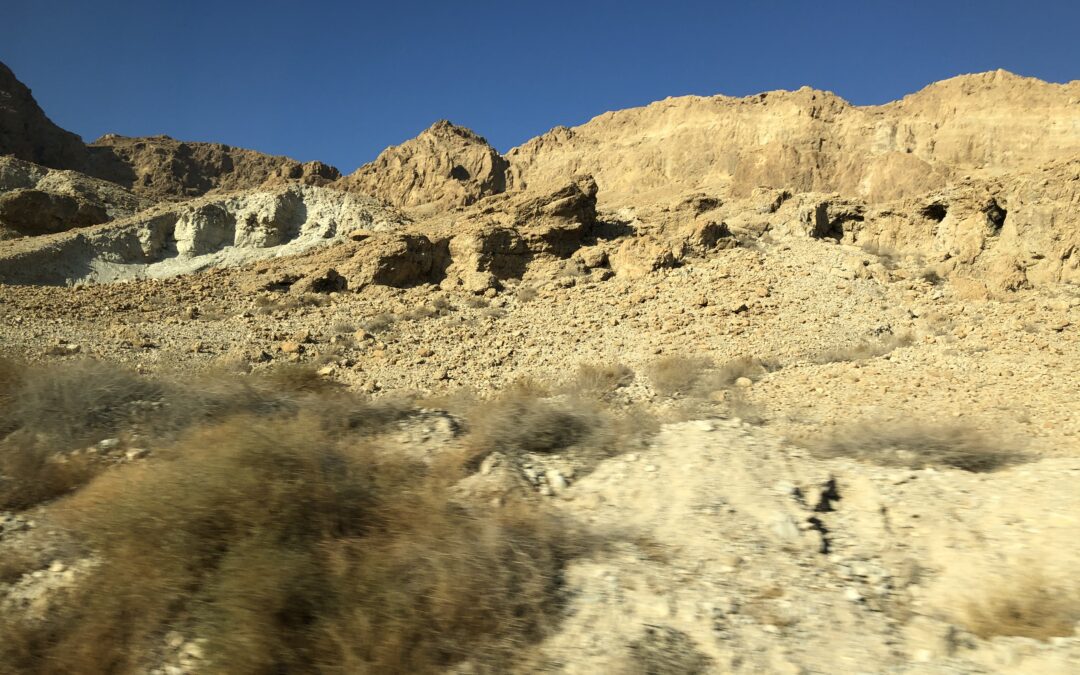
Photo: Rabbi Elkodsi, Jupiter, FL
Shalom, dear congregants,
As we gather on this auspicious occasion of Rosh Hashanah, we celebrate not only the Jewish New Year but also what is often referred to as the “Birthday of the world.” The concept of creation holds a profound place in our faith, and today, I’d like to explore how this ancient belief intersects with our modern reality, particularly in the context of artificial intelligence.
In the beginning, our tradition teaches us, the world was formed out of chaos. As we blow the shofar to welcome the new year, we are reminded of the call that pierced the void, awakening life and consciousness. This day is a time of reflection, renewal, and commitment to growth, much like the process that unfolded at the dawn of time.
The narrative of creation also encourages us to be stewards of the world. Just as God entrusted us with the care of the earth, we now find ourselves in an era where humanity is creating new forms of intelligence. Artificial Intelligence, a creation of our own making, holds the potential to reshape our world in profound ways.
As we marvel at the strides we’ve made in AI, we must consider the ethical implications of our creations. The power to simulate intelligence challenges us to reflect on what it truly means to be human. Our tradition teaches that we are created in the divine image, imbued with both creativity and moral responsibility. With AI at our fingertips, we face questions of responsibility, empathy, and the impact of our technological choices.
Our ability to create AI reflects our own aspirations for growth and understanding. Just as Rosh Hashanah marks a new chapter in our spiritual journey, AI marks a new chapter in our intellectual journey. It can assist us in solving complex problems, accelerating medical research, and even shedding light on the mysteries of the cosmos.
Yet, we must tread carefully. Our creation should mirror the divine act of creation—guided by compassion, justice, and a desire to uplift humanity. We must ensure that AI serves as a tool that enhances human life, rather than diminishes it. Just as we are taught to care for the earth and all its inhabitants, we must apply those principles to our AI endeavors.
Let us remember that our tradition values learning and progress, but it also cherishes the human soul. AI, for all its brilliance, lacks the essence that makes us uniquely human—our capacity for love, empathy, and spiritual connection. As we navigate this digital age, let us not forget that no creation can replace the sacred bond that unites us with one another and with our Creator.
On this Rosh Hashanah, as we celebrate the world’s birthday, let us celebrate our own creative spirit and the potential of AI. Let us harness its power to bring blessings to our world, just as we have been tasked with doing since the beginning of time. May we be inspired to use our intellect to seek justice, compassion, and healing, guiding our creations with wisdom, and ensuring that they reflect the divine spark that resides within us all. Shanah Tovah—a sweet and transformative New Year to you all.
If you’ve joined us in the past for High Holiday services here at the Malverne Jewish Center, you might be thinking, “this doesn’t sound the way the rabbi usually speaks…” and you’d be right. Chances are the “Shalom Dear Congregants” was your first clue.
And no, I didn’t plagiarize this, at least I don’t think so! I did decide to see what all the fuss of a program called ChatGPT was about, especially since many of my friends and colleagues were posting their AI-written biographies on Facebook. I’m not sure why, but when I asked for my biography, it said it had no idea of who I was, at least as of late 2021. I’m not sure if I should be happy or concerned!
——-
Knowing I wanted to talk about artificial intelligence and its implications this year, I decided to ask the program to write a sermon for Rosh Hashanah that incorporated it being the birthday of the world, and what I just read is what it came back with. Not too shabby, right? It kind of got the facts right, although if it were a term paper, it would come back with an “F” because it didn’t cite its sources.
It also comes across as way too formal, at least for me, although it does use fairly simple language, so I didn’t have to look up any large, poly-syllabic words. I wonder what grade-level the language is! What ChatGPT did give me are some talking points for building this sermon, and ideas to explore further.
As the generator pointed out, another name for Rosh Hashanah is hayom harat olam, the birthday of the world. However, our sages remind us that God began the work of Creation on the 25th of Elul, and that the first day of Tishrei, today, was when God created humans. The Talmud tells us that in the 10thhour of the day the Adam was created, in the 11th they sinned and stood before their Creator in judgment, and in the 12th hour they were forgiven. Chat GPT missed that part, and also missed the Hebrew.
Another thing the generator said was, “Artificial Intelligence, a creation of our own making, holds the potential to reshape our world in profound ways.” What kind of profound ways? Chat GPT didn’t expound on that. And are these “profound ways” positive or negative? Of course, that depends.
How about when you call a company and can’t get a person on the phone, or ask the automated chat robot a question that’s not in its database? How many of us will have to ask forgiveness for the sin we committed by swearing at the auto-attendant? Guilty. However, there are times that I’m happy this automation exists, because it can save me time when I have a simple question that can easily be answered. And if this rabbi thing doesn’t work out, I can always apply for a job at the supermarket as a self-checkout cashier.
Yes, artificial intelligence is a human creation, but so is just about everything we have and use. Think about our basic blessing over food, hamotzi lekhem min ha-aretz, “Who brings forth bread from the earth.” Have you ever been driving out in the country and seen loves or slices of bread growing on stalks? I haven’t, but I do remember years ago seeing a news story about spaghetti growing on trees in England. Ok, it was April 1st, but it took a lot of imagination to come up with it. The point is, unless we’re eating fruits or vegetables exactly as they come off the tree or out of the ground, we’re creating our food. And that’s a good thing. After all, cocoa beans are yucky, dark chocolate, brownies, yummy!
While we might tend to equate AI with computers and modern technology, It’s really been around as long as humans have. One of my favorite sacred texts is Kohelet, Ecclesiastes, who says, ayn hadash tachat ha-shemesh, “There’s nothing new under the sun.” The forms that artificial intelligence take change, but there are even things in the Torah that could be considered AI. How about the Urim v’thummim, the objects used by the high priest in ancient Israel to divine the will of God? They were tools to “interface” with the divine, much like AI can be seen as a tool to interface with vast amounts of data and knowledge. I didn’t come up with that, but when I asked in a Facebook group if anyone could think of examples of AI in Torah, another rabbi posed the question to ChatGPT, and that was one of the examples.
And then there’s the Golem, a creature from Jewish folklore that is brought to life from inanimate material by a holy person, often using the sacred name of God? While the concept of the Golem primarily appears in later Jewish mysticism, it’s based on the idea of imbuing life into the inanimate, akin to creating AI. Creating the Golem didn’t always work out so well.
AI can help us do things more quickly and accurately, but it can’t replace humans, or the human brain. Text generators and robots can gather and disseminate information, but they can’t think for themselves, they’re oblivious to nuance and social cues, and can’t show real emotion or compassion. Imagine, God forbid, being in the hospital and having a robot chaplain come and visit you. It could ask you questions about your faith, beliefs and spirituality, your situation and hopes moving forward, and formulate a prayer for you. But imagine it saying, “If I were in your situation, I imagine I’d be feeling frustrated, discouraged, sad… and then asking follow-up questions to help you access your inner spiritual resources? I can’t. I’ve been in situations where holding a person’s had has a profound impact on both of us, as though Divine energy was flowing between us. You can’t get that with AI.
I could get into all of the ethical and moral implications of using AI in many different situations, like the Trolley Problem, and why according to some, that thought experiment doesn’t really apply in this case, but this is Rosh Hashanah, after all, and shortly, we’ll be standing before our Creator, the Heavenly Judge, acknowledging our imperfections, and praying for God’s compassion. Artificial intelligence can learn the liturgy, perhaps even beat its heart during the Ashamnu on Yom Kippur, but it can’t feel and understand the concept of teshuva. It won’t feel the kavanah of our cantor as she chants the Unetane Tokef.
Machines are capable of learning, integrating, storing and using new information, and learning how to adapt to new situations. But as the generator said, “AI, for all its brilliance, lacks the essence that makes us uniquely human–our capacity for love, empathy, and spiritual connection. AI doesn’t know right from wrong, and the potential for misuse is huge, huge enough that Samuel Altman, the CEO of Open AI, testified before Congress regarding the technology his company has created. In the conclusion of his written testimony he wrote, “This is a remarkable time to be working on AI technology. Six months ago, no one had heard of ChatGPT. Now, ChatGPT is a household name, and people are benefiting from it in important ways. We also understand that people are rightly anxious about AI technology. We take the risks of this technology very seriously and will continue to do so in the future. We believe that government and industry together can manage the risks so that we can all enjoy the tremendous potential.”
We know from our Torah reading that when the Holy Blessed One saw how not only the humans were corrupt and acting improperly, all of God’s creation was as well, and in an attempt to rid the world of evil, God brought the flood. Well, we know how that worked out. After all, Noah may have been the most righteous in his generation, but he was still an imperfect being, just like us, and just like the things we create, including those other human beings we call our children. It’s not just AI that might run amok.
While Judaism doesn’t ascribe to the concept of “Original Sin” the way Christians do, our sages do see Adam and Eve disobeying God as the origin of sin, and there’s a big difference. The word most used to convey a sin in Torah is chet, which is an archery term. A chet is an arrow that missed its mark. Even the top archers in the world sometimes miss not only the bullseye, but even the target itself. So it is with us. So yeah, AI kind of misses the mark, but remember, AI was created by humans who often miss the mark, and that’s why we have opportunities every day to acknowledge that and try to do better.
Humans are created b’tzelem Elohim, in the Divine image, and by emulating God’s attributes, we’re partners in making the world a better place. The question is, does AI help make the world a better place? And if so, how?
This is the question I pose to you today. Artificial intelligence can do a lot, but it can’t replace human connection, human interaction and human emotion. That’s why the Dutch supermarket operator Jumbo created Kletskassa, which translates to “chat checkout” in English. These checkout counters allow customers and cashiers to leisurely chat with each other, helping to alleviate some of the loneliness so many suffer from. On a much more local level, being here in person, in this makom kadosh, this holy space, elevates our Rosh Hashanah worship as we sing and pray together, and schmooze in between. AI can’t possibly substitute for that.
As we move through today and through the week to Yom Kippur, may we be blessed to be aware of how artificial intelligence impacts our lives, to seek out opportunities for true human encounters, and to see the Divine spark in each person we meet.










0 Comments